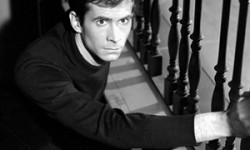
London Film Festival Review: Afternoon Delight (2013)
Cast: Kathryn Hahn, Juno Temple, Josh Radnor
Director: Jill Soloway
Country: USA
Genre: Comedy | Drama
Official Trailer: Here
Editor’s Notes: The following review is part of our coverage of the BFI London Film Festival. For more information on the festival visit http://www.bfi.org.uk/lff and follow the event on Twitter at @bfi.
Afternoon Delight has had a fairly successful run of festival appearances, premiering at the Sundance Film Festival and even landing director Jill Soloway with the Dramatic Directing Award win and Grand Jury Prize nomination. Featuring comedienne Kathryn Hahn in her first major starring role opposite Josh Radnor and Juno Temple, Afternoon Delight is nothing short of an indie sex comedy that’s rarely delightful and occasionally impressive. Showcasing Hahn’s ostensible talent in a long-overdue leading role, the film doesn’t fail through its performances; Juno Temple is the ultimate show-stealer in Afternoon Delight. The script simply doesn’t live up to the performances to which it is awarded, plagued by clichés and predictable deus ex machinas that leave the viewer immensely dissatisfied. Furthermore, the maladroit direction adds a discerning level of confusion to the film; it explores the heavy themes of prostitution, sexual tension and marital turmoil, jumping genre inappropriately from serious drama to comedy. The vacillating execution fails to provide the backset for the incredible cast to shine and ultimately is the film’s biggest letdown.
The script simply doesn’t live up to the performances to which it is awarded, plagued by clichés and predictable deus ex machinas that leave the viewer immensely dissatisfied.
Hahn portrays trendy Los Angeles housewife Rachel, one half of a sexless and unsatisfying marriage to work-obsessed Jeff, played by Josh Radnor (first cliché of the film). Looking for a way to spice up their love life, they embark on a one-off sexual voyage to a strip club and encounter the spirited and vibrant McKenna (Juno Temple). Despite the excursion failing to rekindle the sexual flame between the two that they had hoped for, Rachel becomes increasingly intrigued by and interested in the blonde bombshell. Eventually, Rachel invites McKenna to come and be the live-in nanny for their young son to attempt to try and ‘save’ McKenna from her on-the-side career as a prostitute whilst undergoing a midlife crisis and momentary loss of identity (second cliché of the film). Ultimately, her flawed decision-making comes to a crunch when McKenna demonstrates herself as perfectly independent and capable of making her own choices, putting Rachel in an awkward position: perhaps McKenna isn’t the one who needs saving.
 The most prominent undertone of Afternoon Delight is satire; the story takes place in the pinnacle of Californian privilege, an offset that increasingly appears absurd and self-absorbed when placed next to the lifestyle of the deprived McKenna. Soloway’s biggest mistake is failing to balance out these two contrasting yet intertwined worlds equally, reducing the complaints of the affluent characters to nothing more than the whining of the wealthy. In fact, McKenna’s entire persona and the carefree, exuberant lightheartedness that she exemplifies diffidently points to the notion that perhaps money isn’t the path to ultimate happiness. But even for the apparent message of morality that can be derived from such characters in Afternoon Delight, such subtext isn’t enough to throw off the feeling of pretentiousness that accompanies it. The characters, and their shallow moping despite possessing everything that money can by, are ultimately simply irritating.
The most prominent undertone of Afternoon Delight is satire; the story takes place in the pinnacle of Californian privilege, an offset that increasingly appears absurd and self-absorbed when placed next to the lifestyle of the deprived McKenna. Soloway’s biggest mistake is failing to balance out these two contrasting yet intertwined worlds equally, reducing the complaints of the affluent characters to nothing more than the whining of the wealthy. In fact, McKenna’s entire persona and the carefree, exuberant lightheartedness that she exemplifies diffidently points to the notion that perhaps money isn’t the path to ultimate happiness. But even for the apparent message of morality that can be derived from such characters in Afternoon Delight, such subtext isn’t enough to throw off the feeling of pretentiousness that accompanies it. The characters, and their shallow moping despite possessing everything that money can by, are ultimately simply irritating.
Afternoon Delight is further inundated by the vast amount of themes that it encapsulates and touches upon whilst failing to explore or develop a single one. Most notably, the ostensible sexual tension between the two female leads, Rachel and Mckenna, is first established during the risqué and explicit lapdance in the strip club. Despite Rachel’s palpable discomfort, McKenna’s sexual prowess and liberation clearly trigger something within her. The climax of their intricate relationship is reached during an intimate body massage that McKenna performs on Rachel, a moment handled appallingly by Soloway. Such a moment simply exudes sexual tension, sadly and gauchely completely disregarded. The frustration that incurs having invested so much emotion and time into both the characters and the relationship of this situation is substantial; such effort is ultimately futile, as Hahn’s character unexpectedly and unnecessarily cuts off McKenna after accompanying her to one of her hooker jobs, abandoning the audience with a solitary sentiment upon the film’s conclusion, a word that can encapsulate the entire film: dissatisfaction. Afternoon Delight entails the dissatisfaction of the middle class life, the dissatisfaction attached to any unhappy marriage and the dissatisfaction of an identity crisis. Perhaps it was too much to hope to leave the film feeling anything else other than exactly that.
The most prominent undertone of Afternoon Delight is satire; the story takes place in the pinnacle of Californian privilege, an offset that increasingly appears absurd and self-absorbed when placed next to the lifestyle of the deprived McKenna. Soloway’s biggest mistake is failing to balance out these two contrasting yet intertwined worlds equally, reducing the complaints of the affluent characters to nothing more than the whining of the wealthy.
The moments of comedy gold that the film does occasionally offer, such as the hugely underused Jane Lynch as the therapist blubbering inappropriately to Rachel about the breakup up of her lesbian relationship, are not ample enough to topple the mound of inadequacies that Afternoon Delight accumulates. Despite the relevance of the social subtext that the film captures, the film ultimately establishes itself as delightful by name but not by nature.
Related Posts
![]()
Zoe De Pasquale
![]()
Latest posts by Zoe De Pasquale (see all)




























